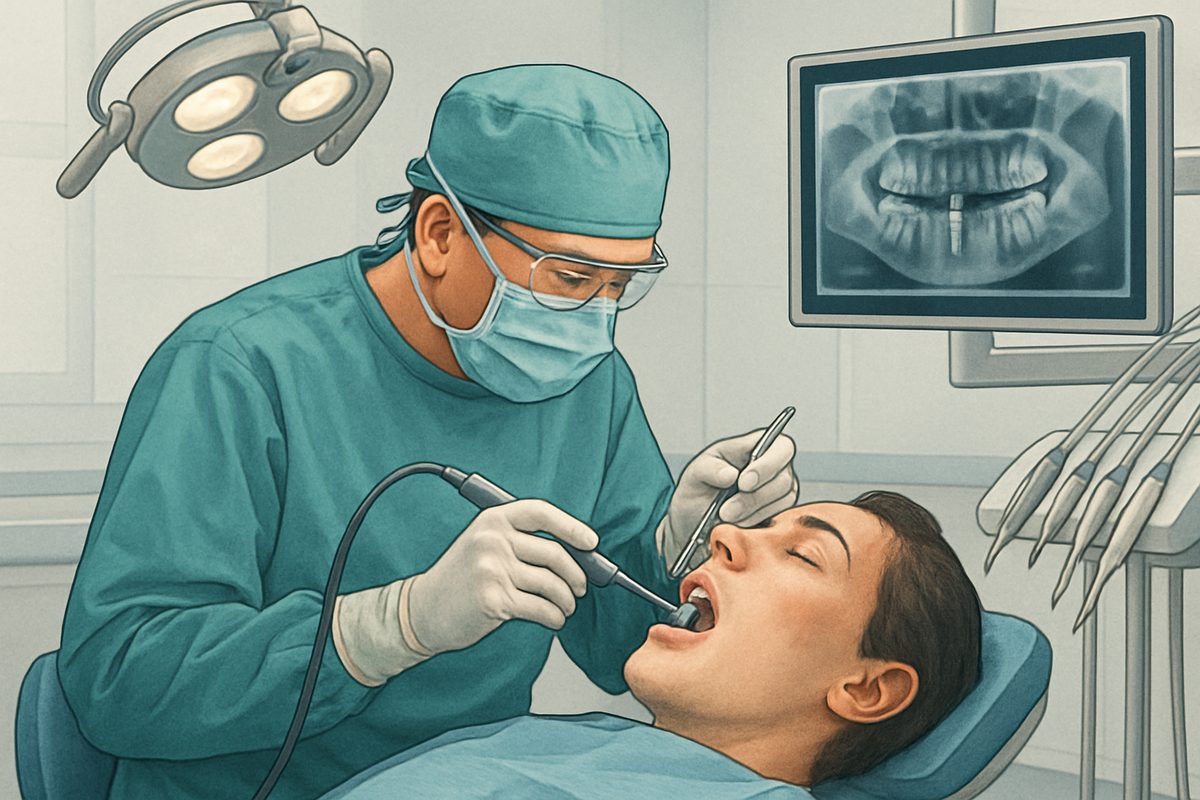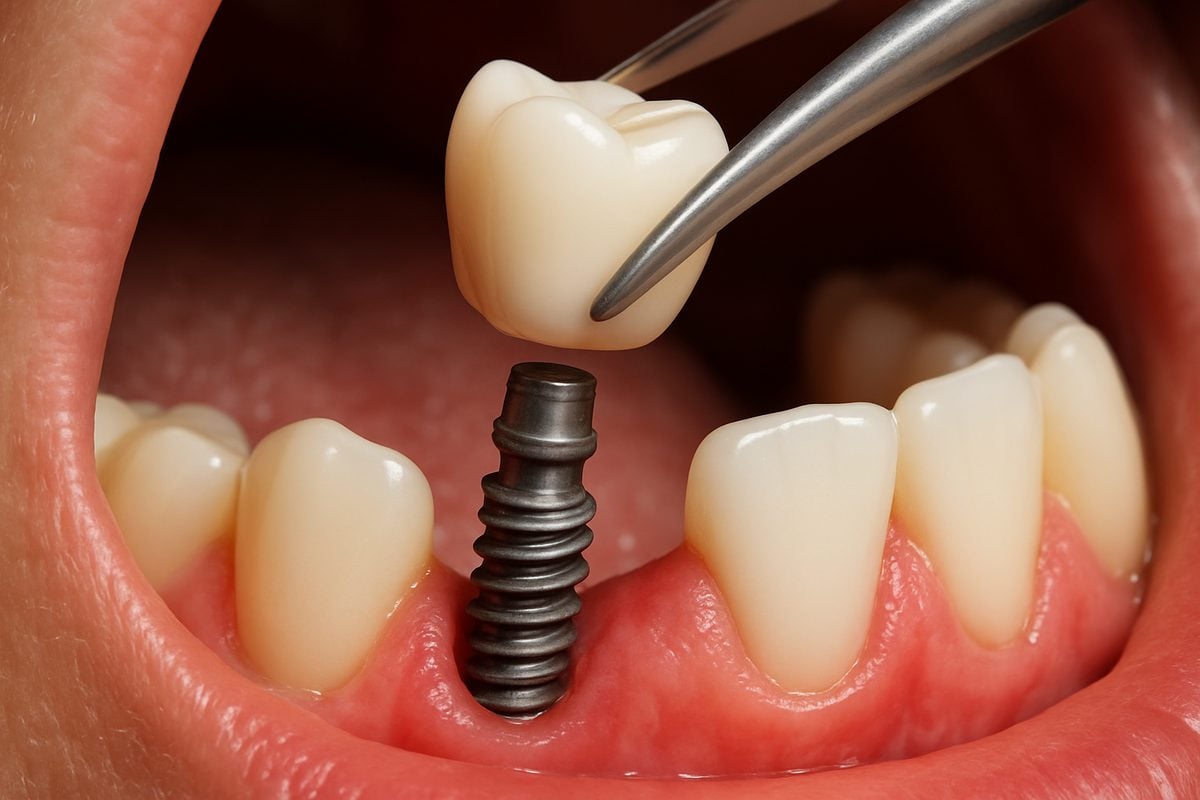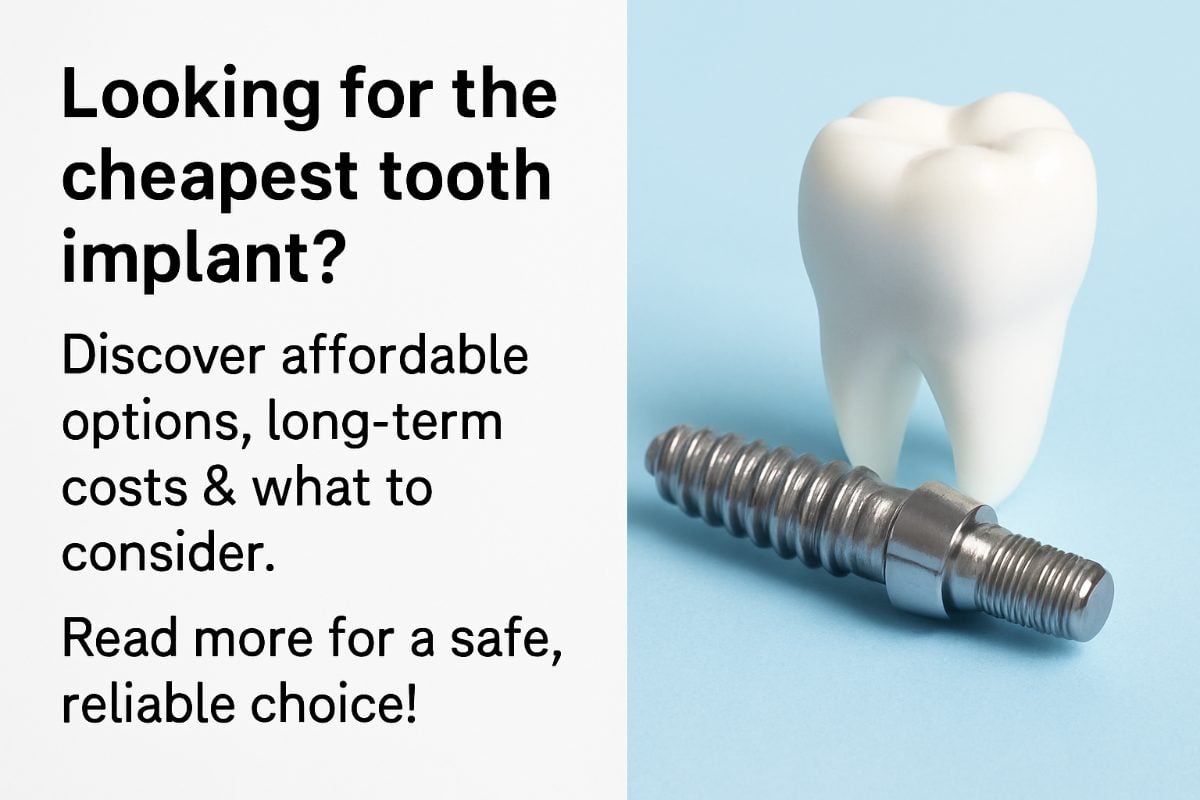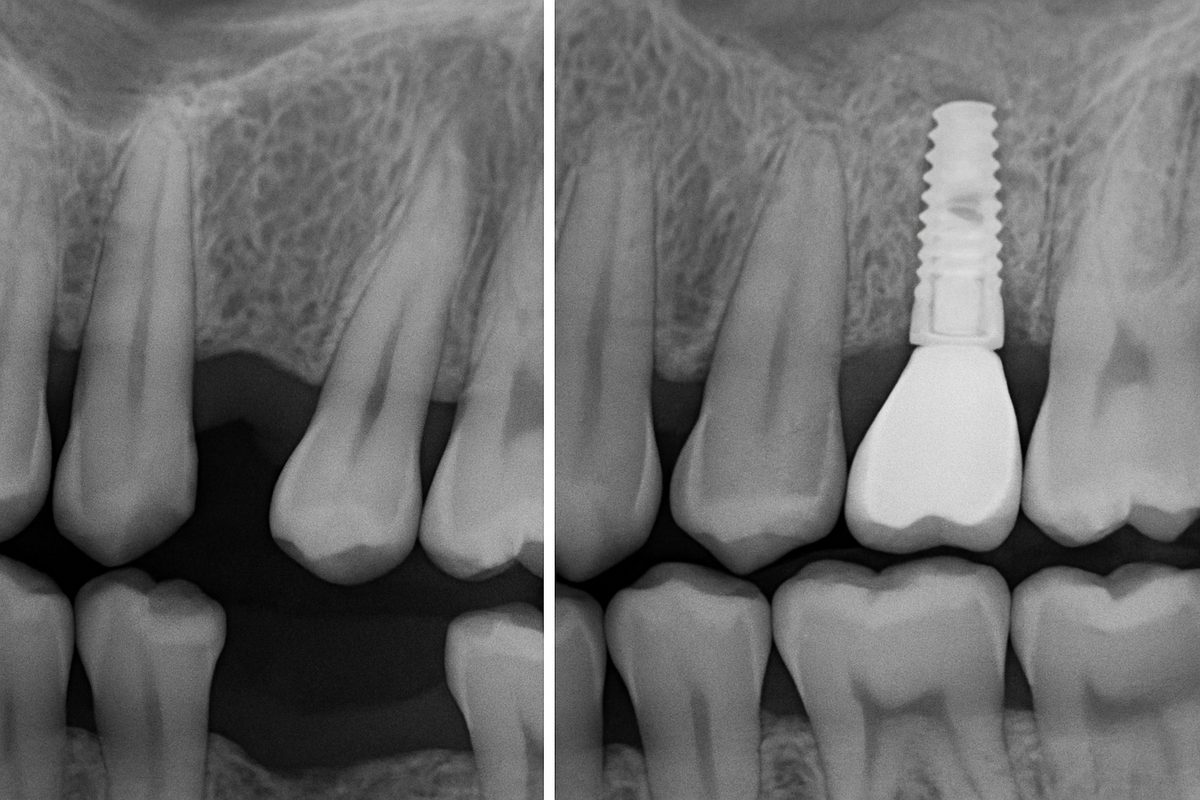Blog - St. Louis, MO
Tips, Facts, And The
Latest In Dentistry

What You Need To Know About Tooth Implant Surgery

Tooth implant surgery in St. Louis can replace a missing tooth root with a strong, long-lasting anchor for a crown, bridge, or denture. This post gives a clear, patient-friendly overview of tooth implant surgery: what it is, who is a good candidate, how the procedure works step by step, the risks and recovery, cost and financing, and what to ask when choosing a provider. If you’re weighing options for tooth implant surgery in St. Louis or want to understand the process before a consult, this guide will help you feel prepared and confident.
What is tooth implant surgery?
A dental implant is a small titanium post placed into the jawbone to act like a missing tooth root. Once healed, the implant holds a crown, bridge, or denture securely. Tooth implant surgery replaces both the root and the visible tooth, giving better function and bone support than a standard bridge or removable denture. Many people choose tooth implant surgery in St. Louis because it restores chewing, speech, and appearance.
Who is a good candidate for tooth implant surgery?
Oral health and bone requirements
Good candidates have healthy gums and enough jawbone to support an implant. If bone has shrunk after a long-term missing tooth, a bone graft or sinus lift may be needed before implant placement. Your dentist will use imaging to measure bone volume and quality to plan tooth implant surgery in St. Louis or elsewhere.
Medical and lifestyle factors
Certain health conditions and habits affect healing. Poorly controlled diabetes, heavy smoking, or medications that impact bone healing can raise the risk of complications. Many patients can still get implants with proper medical management and quitting smoking. Discuss all medical history and medications before any tooth implant surgery.
The tooth implant surgery process — step by step
Consultation and diagnostic imaging
The process starts with an exam, digital X-rays, and often a 3D cone beam CT scan. These images let the team plan exact implant position and check nearby nerves and sinuses. Expect a treatment plan that explains timing, costs, and whether extra procedures are needed for tooth implant surgery in St. Louis.
Preparatory work: extractions and bone grafts
If a damaged tooth remains, it will be removed. If bone is insufficient, a graft can rebuild the area. A sinus lift is used in the upper back jaw when the sinus cavity is too close to the implant site. These steps add time but increase the chance of long-term success.
Implant placement and healing (osseointegration)
During surgery, the implant is placed into the jawbone. The site is closed and left to heal while the implant fuses to bone — a process called osseointegration. Healing usually takes 3–6 months. Many patients report mild discomfort the first few days, which is managed with pain control and rest after tooth implant surgery.
Abutment and final restoration
Once healed, a small connector called an abutment is attached to the implant. Then the final crown, bridge, or denture is fitted. The result looks and functions like a natural tooth. Final adjustments ensure bite and comfort.
Common risks and how they’re managed
Short-term risks
Pain, swelling, minor bleeding, and bruising are normal in the first 48–72 hours. Infection is a risk but is uncommon with proper care. Call your provider if you have severe pain, heavy bleeding, fever, or pus.
Long-term risks
Long-term issues can include implant failure, nerve irritation, or problems with the attached crown or denture. Prevention includes careful planning with 3D imaging, good surgical technique, and strict oral hygiene. If a problem occurs, options range from replacing the prosthetic to redoing the implant.
Recovery and aftercare after tooth implant surgery
First 48–72 hours
Expect rest, ice for swelling, soft foods, and prescribed or over-the-counter pain relief. Avoid strenuous activity, smoking, and poking the area. Follow wound care and medication instructions closely to reduce infection risk after tooth implant surgery in St. Louis.
Weeks to months
Keep the area clean with gentle brushing and saltwater rinses as recommended. Attend follow-up visits so the team can monitor healing and take images. Successful osseointegration shows no pain, stable implant, and healthy gums.
Long-term maintenance
Treat implants like natural teeth with daily brushing, flossing, and regular dental cleanings. Avoid hard, sticky foods that can stress restorations. Routine care helps implants last decades.
Cost, insurance, and financing for tooth implant surgery
What affects the price
Costs vary by number of implants, need for bone grafts or sinus lifts, the type of restoration (single crown vs. full-arch prosthetic), and lab fees. Guided surgery and in-house lab work can influence price and speed of treatment for tooth implant surgery in St. Louis.
Insurance and payment options
Dental insurance may cover part of the crown or procedures, but many plans limit implant coverage. Medicare and most Medicaid plans do not cover routine dental implants. Many practices offer payment plans, third-party medical financing, or in-house financing to make treatment affordable.
How modern technology improves tooth implant surgery outcomes
Advances like 3D cone beam CT scans, intraoral scanners, guided surgical systems, and on-site labs increase accuracy, reduce chair time, and improve outcomes. Guided surgery helps place implants precisely to avoid nerves and optimize aesthetics. Digital planning reduces surprises during tooth implant surgery in St. Louis.
Why choose a specialized implant center?
A specialized implant center focuses on implant care and often has a private surgical suite, sedation options, and a team experienced with complex restorations. That focused experience can improve predictability and comfort.
About New You Smile and Dr. James Fetsch
New You Smile is St. Louis’ implant-focused center led by Dr. James Fetsch (FAGD, ICOI). The practice uses 3D imaging, X-Nav guided surgery, intraoral scanning, and an on-site lab to plan and fabricate restorations. Dr. Fetsch has placed nearly 30,000 implants and emphasizes precision, safety, and patient comfort.
Deciding if tooth implant surgery is right for you — next steps
Prepare questions before a consultation: ask for a 3D scan, a clear timeline, sedation options, and a written plan with costs. Request alternative options and second opinions if unsure. If you’re considering tooth implant surgery in St. Louis, schedule a consult to review your images and get a personalized plan. A good team will explain risks, benefits, and the steps to restore your smile.




